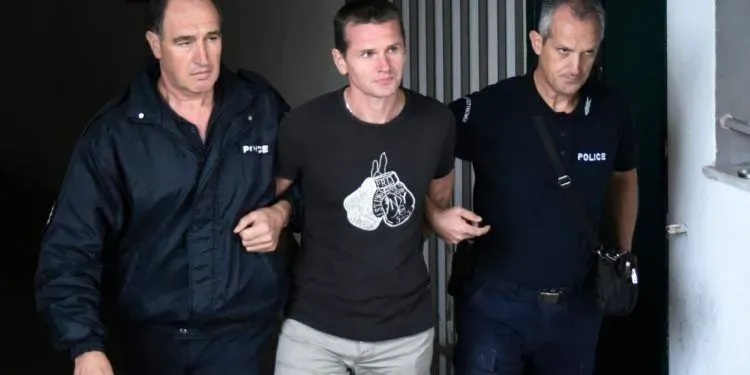Defunct Crypto currency exchange BTC-e and its alleged founder Alexander Vinnik will face charges from US prosecutors.
US prosecutors brought charges against Alexander Vinnik and the now-closed exchange BTC-e. The charges are related to money laundering and other criminal activity linked to the exchange. BTC-e was the go to location for storing of illegal bitcoin as well as converting crypto into fiat currency.
In an incident that may throw a negative light on the crypto currency debate, the US prosecution has brought a complaint to the Greek authorities about the now-defunct crypto currency exchange. The US claims that the founder himself was involved in alleged criminal activity. Alexander Vinnik, a russian national, is said to be the founder, although he denies the claims. The implications of a russian national has political undertones as well.

According to the filing, the Financial Crimes Enforcement Network (FinCEN) determined civil penalties for BTC-e and Vinnik last year. He now faces fines of over $88 million with regard to the exchange and $12 million for personal crimes.
The FinCEN claim that Alexander Vinnik and BTC-e did not make an attempt to register the exchange with FinCEN. This is mandatory for all the exchanges located in FinCEN countries. Greece, where Alexander Vinnik is currently held, is also a part of FinCEN. The US also claims that there was no implementation of Anti-Money Laundering practices, or a willingness to report suspicious activity generally.
Report Details
From a report published by Cointelegraph, the filing also notes that BTC-e and Vinnik were indicted in 2016 on counts of running an unlicensed money services business and conspiracy to commit money laundering. In 2017, a grand jury issued a superseding indictment with added charges of money laundering and engaging in unlawful monetary transactions.
As per the recent indictment, this exchange did not require an identity check through any means in order to sign up and use the service, although it sometimes required identity validation for certain wire transfers.
More crucially, BTC-e was reportedly used by criminals for money laundering and liquidation by anonymously converting their proceeds from crypto to fiat money. According to the report, BTC-e facilitated hacks, ransomware payments, identity theft, embezzlement and narcotics distribution.
Vinnik is a Russian national who is currently imprisoned in Greece. Vinnik reportedly held a senior leadership position in BTC-e, and he and the exchange are being indicted again in 2019 on behalf of the U.S. Department of the Treasury. He is alleged to be the founder of the crypto exchange faces charges.
Vinnik was reportedly aware of BTC-e’s money laundering facilitation, and even sent emails in which he said he was the owner of BTC-e and was using the exchange for illegally-backed transactions himself. Vinnik also allegedly holds accounts associated with other criminal activities, including ones tied with the theft from also defunct exchange Mt. Gox.
An appeal for extradition
This is not the first time that Cointelegraph reported on the appeal for extradition to Russia. Vinnik has made a new appeal based on humanitarian reasons this time. He claims his wife is terminally ill and he would wish to spend time with her.
The chances of Vinnik securing an extradition is slim as western countries do not trust Russia to implement any restrictions on its citizens.
Russia’s Commissioner for Human Rights Tatyana Moskalkova had backed the request previously, asking the United Nations High Commissioner for Human Rights Michelle Bachelet and Greek Justice Minister Michalis Kalogirou to support the extradition.
At the time, commissioner Moskalkova argued that Vinnik ought to be extradited to be with his family as his wife was deathly ill. Moskalkova said:
“Given the extraordinary humanitarian situation, I would ask for help extraditing him to Russia so that he could be closer to his family.”
This may be impossible as the crypto exchange faces charges relating to multiple counts of money laundering.


